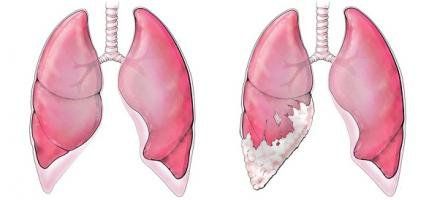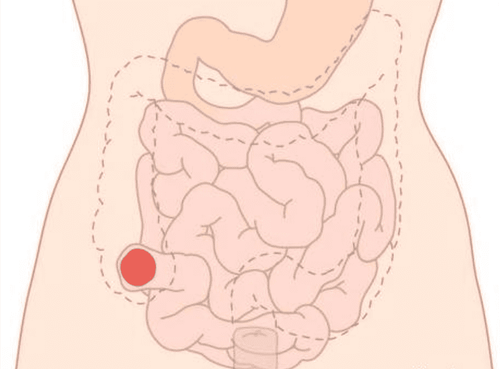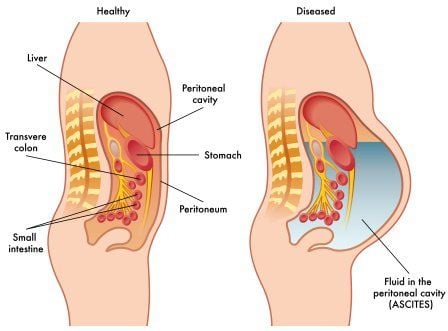This is an automatically translated article.
Pleural effusion is a complex disease, increasingly common in the community, can occur in both adults and children. Knowing the cause of pleural effusion will help each person proactively and effectively prevent this condition.
1. What is pleural effusion?
Each lung in the ribcage is surrounded by 2 very thin layers of pleura. Between these two membranes is the pleural cavity, which normally contains only a few milliliters of fluid, which helps smooth the surface of the lungs when rubbing against each other, creating conditions for the lungs to expand better with each breath.
Pleural effusion syndrome is a common medical condition. This is fluid retention in the pleural space, i.e. an abnormal accumulation of fluid in the pleural space. Normally, the amount of fluid in the pleural space is only about 10-20ml. Pleural effusion occurs when the amount of fluid in the pleural cavity is more than normal, causing you to have chest tightness, shortness of breath,...
Pleural effusion is a manifestation of many different diseases, but is often classified The pleural effusion is divided into 2 types:
Permeable pleural effusion: Mainly due to malnutrition, heart failure, kidney failure, cirrhosis of the liver, ascites, hypoalbuminemia, nephrosis, hydronephrosis, constrictive pericarditis, atelectasis , peritoneal dialysis, pulmonary suspension, systemic capillary leak syndrome, hypothyroidism,...; Pleural effusion: Due to tuberculosis, cancer, pneumonia, pulmonary embolism, viral infection, coronary artery bypass surgery, uremia, subdiaphragmatic abscess, HIV infection, rheumatoid arthritis, drugs, ovarian hyperstimulation syndrome, pancreatitis, esophageal rupture, superior vena cava compression syndrome, benign ovarian tumor,...
2. Some causes of pleural effusion
What is the cause of pleural effusion? They are:
2.1 Tuberculosis pleural effusion TB pleural effusion can appear in the primary stage of TB - usually 3 - 6 months after primary TB infection or recurrent pulmonary TB. Tuberculous pleural effusion is the result of a late hypersensitivity reaction, associated with tuberculosis bacteria in the primary infection, lymph nodes, or bloodstream. In addition, tuberculous pleural effusion is also caused by obstruction of intrathoracic lymphatic drainage when the mediastinal nodes are tubercular or due to rupture of a tuberculous abscess near the spine,...

Nguyên nhân tràn dịch màng phổi có thể do lao gây ra
The patient has been in contact with someone with pulmonary tuberculosis. Elderly people Malnutrition Patients who have recently had surgery Pregnant women and giving birth Patients with chronic diseases (heart failure, kidney failure, diabetes,...). Patients usually have one or more of the following symptoms:
The disease begins with chest pain and fever from 38 - 39.5°C The patient has signs of weakness weeks before, poor appetite, insomnia ,... The patient has a severe chest pain on the affected side, a lot of pain in the ribs, often has a fever in the afternoon, sweats at night,... The patient often has a dry cough, which can cough up sputum or out blood if there is damage to the lung parenchyma. 2.2 Pleural effusion due to metastatic cancer The cause of pleural effusion may be metastatic cancer. The most common types of cancer that metastasize to the pleura and cause pleural effusion are: bronchial cancer, breast cancer, malignant lymphoma,... Malignant pleural effusion is also seen in metastatic cancer. metastasize to mediastinal lymph nodes, obstructing lymphatic drainage and causing pleural effusion.
Pleural effusion due to cancer metastasis usually occurs in the elderly, over 40, 50 years old, most often metastases from 1 primary cancer in the chest or outside the chest. There are some cases with pleural effusion but no primary cancer is detected.
Patients with pleural effusion due to cancer metastasis often have less fever, poor appetite, fatigue, weight loss, pale skin, anemia, etc. Patients have prominent chest pain, persistent dull pain. long, dry cough or hemoptysis, difficulty breathing,... On examination, supraclavicular lymph nodes can be seen, paraneoplastic syndrome makes the disease progressively worse despite treatment.
2.3 Pleural effusion due to malignant lymphoma The cause of pleural effusion due to malignant lymphoma (including Hodgkin's disease and non-Hodgkin's lymphoma) is also quite common. Hodgkin's disease is the third leading cause of malignant pleural effusion after bronchial cancer and breast cancer.
Pathogenesis: In pleural effusion lymphoma, it is often caused by cancerous lesions in mediastinal lymph nodes, causing lymphatic obstruction, leading to pleural effusion (if the thoracic duct is blocked, it can cause chylous intubation. chest). Possibly pleural effusion due to infiltrate from lung lymphoma infiltrates the pleura.
Hodgkin's disease and non-Hodgkin's lymphoma causing pleural fluid often appear quietly, silently, difficult to detect early through clinical symptoms. Symptoms of fever, weight loss, peripheral lymphadenopathy in many locations, ... often appear late. Pleural fluid is a lemon-yellow fluid or blood serum. The disease will progress gradually, leading to death.
2.4 Pleural effusion due to malignant pleural mesothelioma A common cause of pleural effusion is pleural mesothelioma. These are primary tumors, which develop from pleural mesothelial cells. There are two types: benign pleural mesothelioma and malignant pleural mesothelioma. In addition, primary lung neoplasms include pleural fibroids.
Malignant pleural mesothelioma is a primary pleural cancer caused by malignant cells that develop from pleural mesothelioma cells. People with a history of exposure to asbestos have an increased risk of developing this disease. The disease has a poor prognosis.
Age at diagnosis is usually about 50 - 60 years old (because most of them are found in patients who have been exposed to asbestos for 30 years or more). The disease is more common in men than in women, often with a silent onset and poor symptoms. Patients rarely have fever, initially have vague chest pain, later the pain becomes more obvious (this time often with pleural effusion). In the late stage, the patient has severe chest pain, the chest is stretched,... If it is a malignant pleural mesothelioma, the body will gradually weaken, the average survival time is 8-14 months. .

U trung biểu mô màng phổi ác tính có thể là nguyên nhân tràn dịch màng phổi
3. Subjects prone to pleural effusion
Those at high risk of pleural effusion include:
People with lung diseases: atelectasis, pneumonia, lung cancer, pulmonary embolism, pulmonary tuberculosis, cancer metastases from other organs to the lungs; People with cardiovascular disease: Heart failure, constrictive pericarditis, coronary artery bypass graft surgery; People with impaired organ function or immunocompromised: Kidney failure, kidney failure, cirrhosis of the liver ascites, arthritis, hypothyroidism, HIV infection, parasites, systemic diseases,...
4. Measures to prevent the risk of pleural effusion
Knowing the causes of pleural effusion will help you take effective preventive measures. Some tips for you include:
Early detection and effective treatment of diseases that can cause pleural effusion such as: Heart failure, kidney failure, liver abscess, cirrhosis ascites, abscess under the diaphragm,. ..; Limit working and living in areas with polluted environment, actively improve the living environment; Follow a cooked diet, drink boiling water, avoid raw foods; Isolate, keep a safe distance, use prophylactic drugs when in contact with people with tuberculosis; Maintain oral and nasopharynx hygiene, thoroughly treat upper respiratory tract infections to avoid infections in the lungs; Quit smoking or limit your exposure to smokers. Based on the cause of pleural effusion, patients can prevent this condition in advance. In case there are symptoms of pleural effusion, the patient should go to the doctor early for timely detection and treatment.
Please dial HOTLINE for more information or register for an appointment HERE. Download MyVinmec app to make appointments faster and to manage your bookings easily.













